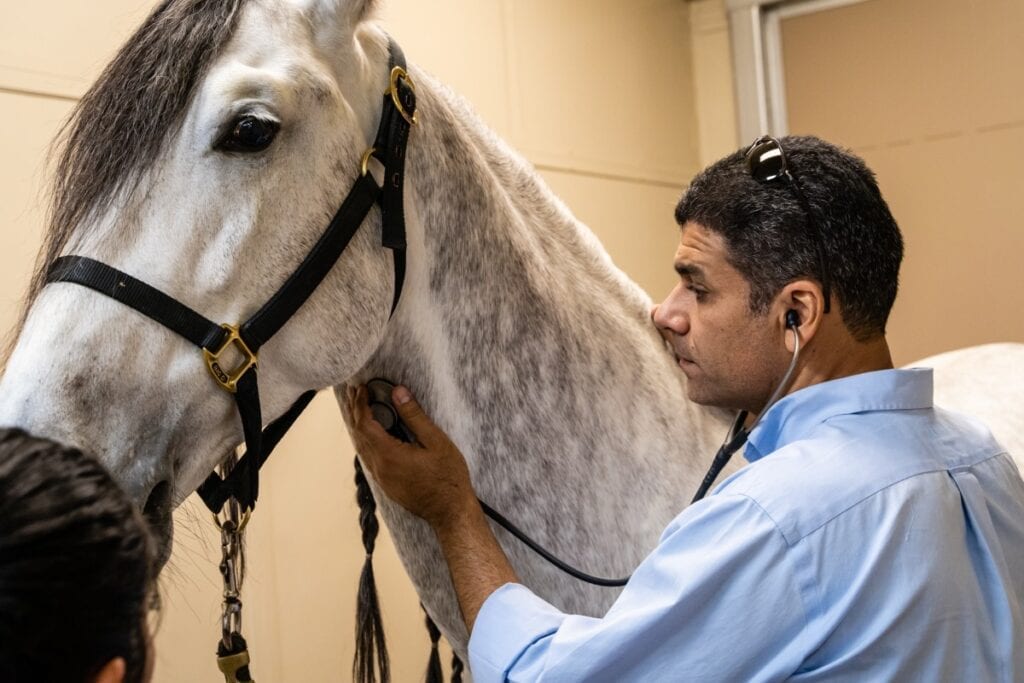Equine Respiratory Health:
Prevention and Care
Respiratory health is vital for your horse’s performance and well-being. Whether in the warm climates of Phoenix or cooler regions, seasonal changes can introduce challenges that affect your horse’s breathing. Understanding and addressing these issues promptly can make a significant difference in your horse’s quality of life.

Why Respiratory Health Matters
Horses have a unique respiratory system that requires efficient airflow to meet their oxygen demands, especially during exercise. Any compromise can lead to decreased performance and health issues.
Recognizing Respiratory Issues
Be alert to signs such as:
- Persistent coughing
- Nasal discharge
- Labored or noisy breathing
- Decreased stamina
- Flared nostrils or heave lines
Early detection allows for timely intervention, preventing more severe complications.
Common Respiratory Conditions
Several conditions can affect equine respiratory health:
- Recurrent Airway Obstruction (RAO): Also known as heaves, this chronic condition is triggered by allergens like dust and mold.
- Inflammatory Airway Disease (IAD): Often seen in younger horses, IAD can cause coughing and reduced performance.
- Exercise-Induced Pulmonary Hemorrhage (EIPH): Bleeding in the lungs during intense exercise, common in racehorses.
Diagnostic Approaches
Veterinarians use various tools to assess respiratory health:
Endoscopy: Visual examination of the airways.
Radiography and Ultrasound: Imaging to detect structural issues.
Pulmonary Function Testing: Measures lung capacity and airflow.
These diagnostics help in formulating effective treatment plans.

Dynamic Endoscopy is performed while the horse is exercising under saddle, providing real-time visualization of the airway during work.
Treatment and Management
Managing respiratory conditions involves:
- Medications: Bronchodilators, corticosteroids, or antibiotics as prescribed.
- Environmental Control: Reducing exposure to dust and allergens.
- Therapies: Nebulization or steam inhalation to ease breathing.
Consult with your veterinarian to determine the best course of action for your horse.
Preventive Measures
Prevention is key to maintaining respiratory health:
- Stable Management: Ensure proper ventilation and cleanliness.
- Feed Practices: Soak or steam hay to reduce dust.
- Regular Check-ups: Routine veterinary visits to monitor health.
Implementing these practices can significantly reduce the risk of respiratory issues.
Expert Care For Equine Athletes
Maintaining your horse’s respiratory health is essential for their overall well-being and performance. By recognizing early signs, seeking prompt veterinary care, and implementing preventive measures, you can ensure your horse breathes easy year-round.
For expert advice and care, contact Cave Creek Equine™ Sports Medicine & Surgery at 623-581-5508.








